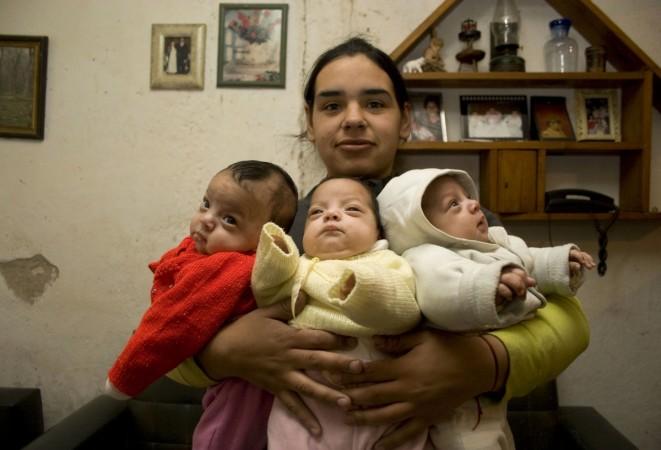
Teen births have affected developing countries such as India as well as developed nations like the United States. World Neighbors (WN), an NGO which has been in existence from 65 years, has taken measures to reduce the same in developing countries. The NGO has presence in 45 countries and its work has benefitted more than 26 million people.
International Business Times (IBT), India edition, interviewed the NGO CEO, Kate Schecter, regarding the success it has achieved in reducing the teen pregnancy rates and educating women about sanitation in the rural areas of Bihar. Here's what Kate Schecter (KS), told us:
IBT : What's the present scenario of teen pregnancy crisis in the US?
KS: US public and private organisations have had significant success in reducing teen pregnancy and births over the past 20 years. According to the US Centers for Disease Control and Prevention (CDC), in 2014 the birth rate was 24.2 per 1,000 women age 15-19 years. This was a 9 percent decline from 2013. Although, still high compared to other industrialised nations, the 2014 rate represented another historic US low. Reasons for the declining rate of US teen pregnancy and births include delayed sexual activity and increased contraceptive usage.
IBT: How many people have World Neighbors (WN) aided so far?
KS: More than half-a-million people each year are helped by our programming. These 557,000 people live in rural, marginalised communities in 13 countries in the ecologically fragile areas of Africa, Asia, Latin America and the Caribbean. Around 9,900 local volunteers aid us in supporting the cause along with local partner organisation's. The WN has either supported or help create over 300 community-based organisations in the countries where we work.
IBT: Did you get any support by the government or any other body in managing the adolescent schools?
KS: We did not receive any government funds, this is a local initiative that was funded through local community-based organisation(CBO) contributions and private funds from the WN.
IBT: Could you name a few communities from where child marriage got eliminated? Was there any particular strategy followed by World Neighbours?
KS: Madhubani, Bihar was one of the communities which got benefited by our efforts majorly. Five Non-Formal Education (NFE) centers, which are run by female teachers for adolescent girls have 150 girls of 10-19 years of age in each. They are getting an opportunity to continue their education in non-formal centers. These centers are located in communities and parents do not fear sending girls to them since they are nearby.
Girls of higher grades are given special classes with the support of subject teachers from the local community and GPSVS (local NGO and World Neighbors implementing partner in Madhubani, Bihar). Girls join the NFE centres in different classes and some start their education from NFE centres.
More than 200 girls from WN supported by the NFE centers have completed 9th through 12th grade in the NFEs, 9 girls are now working as Para teachers, Angawadi (Government center for child nutrition) workers and in other jobs.
Communities of Villages, to name a few - Sugapatti, Amouja, Jagatpur, Dharamdiha, Hasanpur, Saini, Balabakhar, Bairia, Baika, Ghuskipatti and Durgipatti, where WN is still working for more than a decade - child marriage is eliminated through our consistent efforts of Kasturba Mahila Mandal (KMM)/Samiti and GPSVS.
The strategies used in these campaigns were:
- Awareness campaign among womens'group members as well as adolescent girls
- Gender equality training on a regular basis
- Regular discussions about malpractices like child marriage in the monthly meetings and regular follow-up during meetings.
IBT: Coming to sanitation, what all facilities were available to the women?
KS: World Neighbors is teaching the women to build their own private toilets. So far, in the course of two years, hundreds of toilets have been built.
IBT: Tell us more about the hygiene training these women were given.
KS: Women are trained in personal hygiene (including menstruation), reproductive health, infection control through hand-washing and the use of clean water (all the homes in the villages where we work have bio-sand filters that insure safe drinking water), family planning, and the importance of vaccinations. These are all train-the-trainer where leaders in the communities are identified and then volunteer to train neighbouring communities. Around 5,000 women have been trained so far.
IBT: What hardships and challenges were faced by the World Neighbours? How were they tackled?
KS: The women are not used to having a voice and it takes time to convince them and their families to allow them to come to savings and credit meetings. These are very traditional conservative societies where attitudes towards women and girls are very protective and restrictive. Over time the men see that the women are making money and helping to improve the family standard of living—this leads to more support and encouragement. The savings and credit groups can become very lucrative. Women start their own businesses, they buy livestock, seeds, and they learn new, more efficient agricultural practices—this all leads to more acceptance and encouragement from the rest of the community and from the men.








